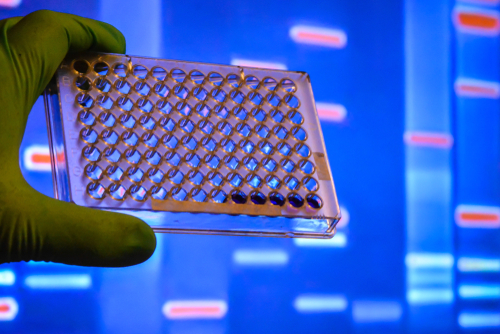



Get new exclusive access to healthcare business reports & breaking news




August, 28, 10x Genomics, the leading company of the genomics field, made public its acquisition of Epinomics, an epigenetic studies startup, that spun out of Stanford University.
Although financial details about the deal were kept under wraps, it was a “double digit deal,” that involved significant cash, the company said.
Through this new addition to its team, 10x Genomics will make possible a new and better understanding of illness, diagnostics and therapies, by using the ATAC-seq technology and fundamental IP to further research in epigenomics.
“Our goal is to accelerate science and enable our customers to see biology they could not see before,” said Serge Saxonov, CEO and co-founder of 10x Genomics. “Today’s acquisition gives us a strong team, IP and technology that has been enthusiastically validated by customers. It provides a foundation for powerful new products and positions us well to become the leader in epigenomics.”
The feature that immediately strikes one about the epigenetics field, is that the term itself is not clearly defined. Or, rather it is defined in so many different ways, by as many scholars, that a complete understanding of what it is still eludes us.
In an essay on this exact matter, authors Carrie Deans and Keith A. Maggert address some really pertinent questions to biologists everywhere .
They wonder, among other points, how it is possible not to have a clear understanding of epigenetics nowadays, since interest in the field has increased so much in recent years. The term is more frequently used in biomedical research, but even scientific fields outside of the molecular sciences claim an interest in the matter.
So, the question remains: how can anyone study a field that doesn’t even have a generally agreed upon definition? Since the term ‘epigenetic’ has become more widely used in the last ten years, isn’t it important to have a better understanding of what it really means? That is for the scientific community to decide. For now, at least where 10x Genomics and Epinomics are concerned, the understanding of the term will be that of the “Roadmap Epigenomics Project”, started by the National Institutes of Health in 2016: “For purposes of this program, epigenetics refers to both heritable changes in gene activity and expression (in the progeny of cells or of individuals) and also stable, long-term alterations in the transcriptional potential of a cell that are not necessarily heritable.”
The global genomics market is expected to reach USD 27.6 billion by 2025, according to a new report by Grand View Research, Inc. The last 20 years brought some prominent changes in the way diseases are managed, especially due to concomitant developments in both genomics and individually targeted medicine. Genomic studies have been increasingly used in clinical practices, leading to the discovery and use of ever more targeted therapies.
As scientists have recently come to understand, knowing gene sequencing isn’t enough when seeking to understand how genetics influence human health. What is most important, since it greatly affects the way illnesses progress or regress, is what turns those genes on and off. Epinomics, which is developing technologies for epigenetics research, basically found some new ways to decipher the message the genome is transmitting.
“The way I think about it is that the genome is a huge book of letters but epigenetics is what’s being read,” 10x Genomics CEO Serge Saxonov said in an interview. “We bought Epinomics, as it had developed a new technique to study that.”
The creators of the ATAC-seq technology, a new revolutionary way to measure and decipher the epigenome, were also the founders of Epinomics. Many scientific and commercial entities integrated Epinomics’ technology and analytics platform with their own. Main financial backers of Epinomics are Lightspeed Venture Partners, Felicis Ventures, and Founders Fund.
Epinomics has been developing its technology for clinical applications, one of which is anticipating patient response to immunotherapy, depending on their epigenomic signatures. Cancer immunotherapies is one of the company’s focal points, and they are working in collaboration with Stanford’s Parker Institute for Cancer Immunotherapy to employ biomarkers and epigenomics technology in discovering novel treatments.
10x Genomics raised more than $230 million from SoftBank, Venrock and other backers, and generated about $70 million in revenue last year by selling its hardware and software tools for sequencing DNA to researchers, labs, and pharmaceutical companies. 10x Genomics’ CEO Serge Saxonov, said the company could be able to make an initial public offering in a few years since it is “growing really rapidly”.
Saxonov was previously Director of R&D at Alphabet-backed 23andMe; we recently covered his success in partnering with GSK.
Scientists and big pharma will be able to better understand biological processes when 10x Genomics’ Chromium Single Cell ATAC Solution, in which Epinomics’ proprietary epigenetic technology will be integrated, when it is launched at the end of this year.
Epinomics’ patent portfolio, which covers foundational issued IP relating to ATAC-seq, completes that of 10x Genomics, concerning high throughput single cell applications for ATAC-seq and other epigenetic applications.
The prospects are bright for 10x Genomics, which is the leader in single-cell and other emerging areas of genomic analysis. Its customers have already analyzed over 130 million single cells, which roughly means they did sequencing for 18,000 human genomes.
“With Epinomics joining 10x Genomics, single cell epigenetics will now be available to a broader base of investigators across academic and commercial organizations,” said Howard Chang, professor of Dermatology and Genetics at Stanford University School of Medicine, co-inventor of ATAC-seq and a scientific co-founder of Epinomics. “The innovations coming out of this acquisition will propel the genomics field forward.”
“We are excited to be joining forces with 10x Genomics to transform research and advance healthcare by leveraging cutting-edge scientific technology and deep data analytics,” added Fergus Chan, co-founder and CEO of Epinomics.